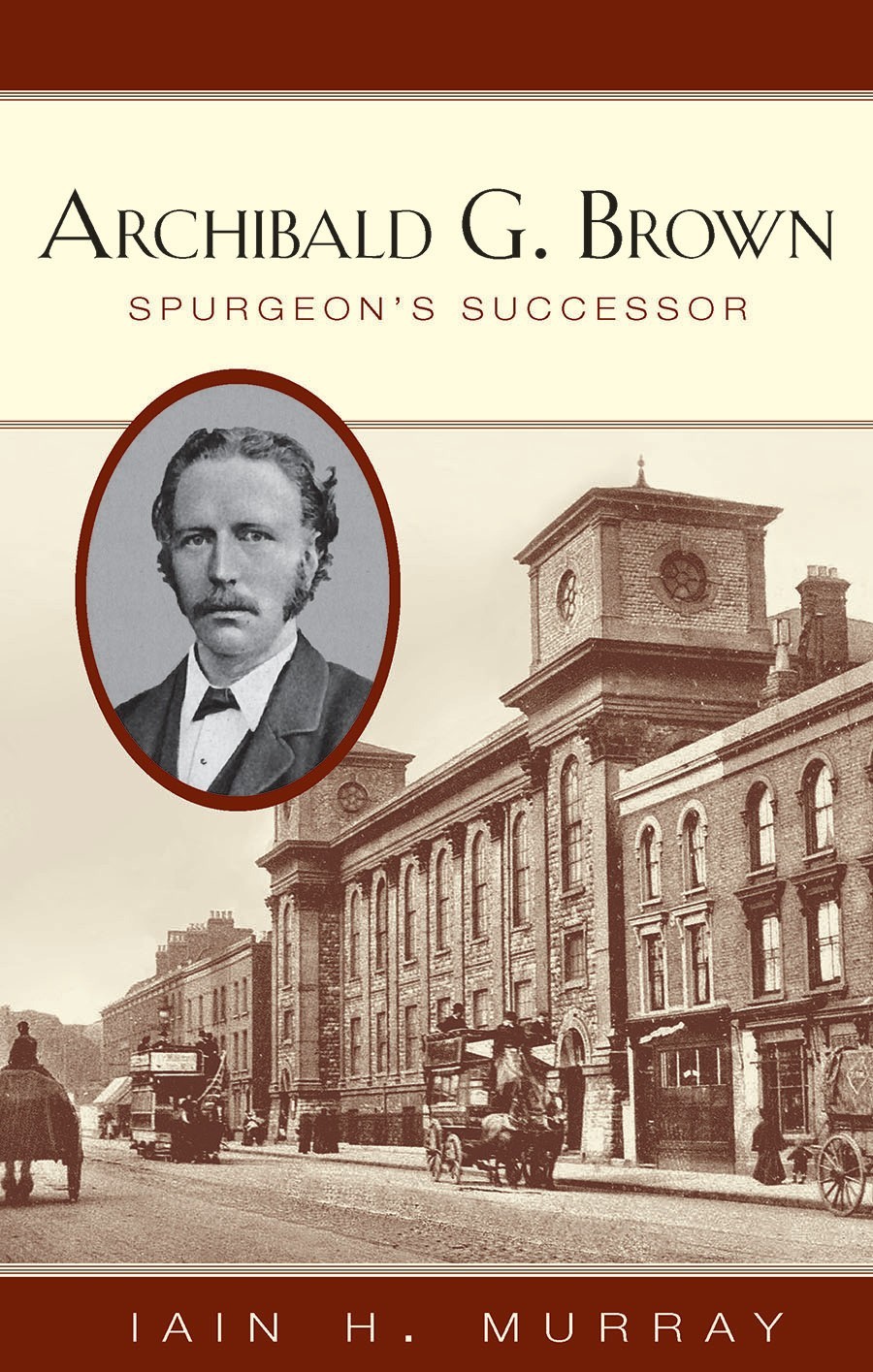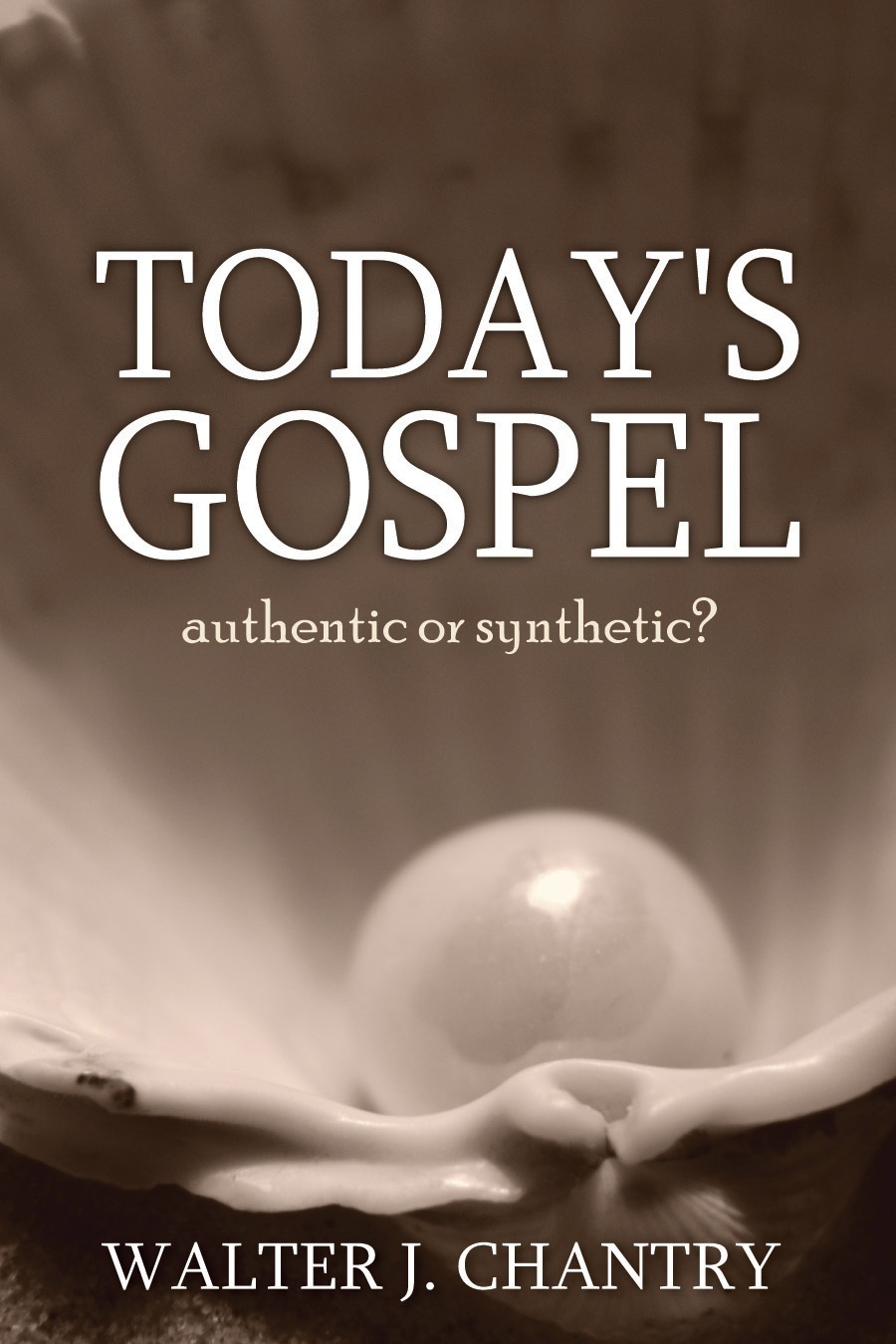Thoughts on the ‘Together for the Gospel’ Conference 2014
Supposing you were suddenly to find yourself among 7,000 mainly young people, singing without any band, Reginald Heber’s ‘Holy, holy, holy, Lord God Almighty!’, and gathered to hear sermons for three days, you might well wonder where you were and what was happening. My own arrival in that situation was not entirely sudden for I had heard and read of it beforehand, but it has still left me with a degree of wonder. The place was Louisville, Kentucky, in April of this year. I had not been in a city before where I was stopped in the street, and at its airport, to sign Banner of Truth books.
What is happening in the United States? Too often opinion is offered by those dependent on second-hand information. It is further regrettable that, due to the publisher’s subtitle, A Journalist’s Journey with the New Calvinism, the idea was launched that what is happening can be called ‘The New Calvinist movement’.1 The umbrella label is a misnomer. A ‘movement’ suggests organization, staff, office, and usually, its own magazine and conference. The phenomenon being described has none of these things. It is far more indefinite and diverse.
There is another reason why the name coined in 2008 should not be accepted: ‘New Calvinist’ too easily suggests some kind of departure from ‘the Old’. But what is now occurring in many parts of the United States can patently be seen to have sprung out of what is far from new. It is no more ‘new’ than the doctrine that was heard under Whitefield and Edwards in the 1740s, or later, under Spurgeon or Lloyd-Jones. What was supposed to be ‘as dead as Queen Anne’ is very much alive in what is happening today. Old authors are being read more eagerly than for a long time, yet it is not the literature, significant as it is, which can account for what is happening. The truth is,
Nobody on earth has managed this Reformed resurgence with all its diversity. No one on earth has planned it, and none can or should harness it. This is a work of God. It may be short-lived, or it may be deep and wide and long. God will decide. I make no triumphalist predictions. We don’t control it.2
Archibald Brown once told the declining congregation at the Metropolitan Tabernacle that, when God revives his work, popular solutions for a recovery would disappear: ‘There will be nothing said from the pulpit or platform about “up-to-date” . . . it will be Bible! Bible! Bible! And the people clamouring, “Let us have the Word of God!”’3 The phenomenon I am discussing does not profess to be a revival, but it is appealing to the Bible in a new way and challenging the perceived wisdom of much contemporary evangelicalism. Not without reason, Jonathan Leeman writes: ‘The hope of T4G [Together for the Gospel] and other like-minded conferences and organizations in the present day is that they would represent not the culmination of revival, but the kindling.’4
Of course, anything seen to be influential in the church scene gathers supporters, and it is to be expected that all kinds of groupings, churches and conferences may wish to align themselves with a resurgent Calvinism. A mixture of participants is inevitable. It has always been so. As Edwards pointed out in the ‘revival of religion’ in the 1740s, some of its most ardent enthusiasts proved to be no true helpers in the work of God and gave occasion for critics to condemn all that was happening.5 The adoption of a name is no proof of anything. Everything needs to be tested by the truth proclaimed, and the character of those involved – are they prayerful, humble before God, loving to all men?
The United States is a large nation and it would be folly to make generalisations about this resurgence. As I have already said, there is no one bloc organization to which either credit or blame can be given. The T4G conference which recently met again at Louisville, is only one conference out of many similar ones across the States, yet to a considerable extent it may be thought of as representative of what some have dubbed ‘the New Calvinism’. Of the nine men who preached — including Thabiti Anyabwile, Mark Dever, Ligon Duncan, John MacArthur, Albert Mohler, and John Piper — none used that name, but they have been so identified by others.
This Louisville conference originated in 2006, and has met biennially since. What it stands for is unambiguous. It has 18 Articles of Faith printed in the conference programme, and the addresses given at the earlier conferences are available.6 They will make surprising reading for anyone who supposes that this is just another of the recurring cycles of evangelical enterprises intent on drawing a crowd. Instead of following a well-trodden evangelical pragmatism, T4G departs from much that has been near axiomatic in contemporary thinking. I had scarcely returned home to the UK when I ran into that thinking in an article which told me that the kind of worship service and preaching that was part of the ministry of Dr Lloyd-Jones belonged to an age ‘completely gone’,
Nobody could preach like that today . . . Our culture is inherently suspicious of conviction, or that there could be any sort of certainty . . . It is equally negative about ‘earnestness’, not only because that unsettles the ‘fun ethic’, which dominates popular culture, but also because it so often seems to mask a self-serving motivation . . . we have failed to realise how the world has changed and continues to do so.7
The idea that the presentation of the gospel must be adjusted to contemporary culture, for long a ‘sacred cow’ in much evangelicalism, has received no reverence at T4G. Instead, the concern over what ‘appeals’ to people, or ‘turns them off’, is traced to a lost confidence in the power of the gospel itself. Dr Mohler asked:
Imagine the response if a pastor asked a congregant, ‘How do you feel about original sin?’ or, ‘What is your emotional response to total depravity, hell, or the Bible’s teaching on sexual morality?’ Preachers should not care how the listener feels about biblical truth.8
In a compelling address, ‘Fine-Sounding Arguments: How Wrongly “Engaging the Culture” Adjusts the Gospel,’ Thabiti Anyabwile argued how the church has ‘an alternative culture’ which ‘undermines the prevailing cultural norms . . . If we imagine that something called “secular” is the same as “safe and neutral”, already we’re deceived by fine-sounding arguments. The word “secular” is not safe neutral ground.’9 Similarly, MacArthur showed how looking for ways to make the gospel appeal to people comes from a failure to understand what is the preacher’s part and what is God’s work:
The power of God unto salvation lies in the message, not in the messenger or the means . . . The sower is not the issue here. It doesn’t matter in the least whether he is using a beat-up, tattered burlap seed bag, or a designer seed bag. We don’t need to hear what he looks like, how smart he is, or whether his academic credentials are impressive. Those things are perfectly irrelevant to the question of what causes the seed to grow. The sower’s role is only instrumental.10
The role which Christian music is expected to play in influencing the world for the gospel is a prominent issue today. Here, also, T4G is out of step with popular thinking. I do not say that it has entirely clarified the issue, but it is addressing and emphasising the right starting point, namely, worship ought to be worship. The idea that it is a means of attracting people has no approval: ‘It is common to find churches that practice a subtle triumphalism in everything from the smiling faces, to the music, to the whole atmosphere, a triumphalism which boasts that everything is great.’11 Such an ethos, Dever argues, does nothing to show sinners what they are in the presence of God:
Is the awesomeness of God reflected in our public gatherings? Is God presented in our individual lives and church gatherings as one who is unique, holy, set apart and distinct? We show something of God’s holiness in the reverence of our public assemblies. Humility should be honoured because, as Christians, we know that humility is appropriate for sinners such as us. Our churches should clearly teach this important truth, even if it is culturally unpopular.12
At Louisville the words sung for praise were selected chiefly for the suitability of their biblical content. Some two thirds of the hymns printed in the conference brochure were composed before 1900, and a number much earlier. But it was not only what was sung, but how it was sung, which stood out. Today congregational singing is commonly fast, and frequently almost drowned out by accompanying musical instruments. What else can possibly be popular? Slow singing, led at Louisville only by a piano (and sometimes not even by that), is supposed to be something to be avoided. Certainly there is no merit in slow singing as such, and there has to be variation in pace, but when the tempo is always quick the strong likelihood is that the music has come to mean more than the words. Spurgeon represented what he called ‘the new fashioned style of singing’ as, ‘Let us rattle through it as fast as we can. Never mind about whether God gets any glory out of it or not; all we care about is the music.’ He recommended tunes which give you ‘a chance of chewing it, not one that you must swallow, as if it were a pill.’
There were other areas where the teaching or practice at Together for the Gospel cannot be said to harmonise well with contemporary thinking. No ground was given to the cry that ‘we are in the visual age’, not in the age of the spoken word; nor to the idea that the so-called ‘generational divide’ should be reflected in the organisation of church life. Young although the majority of the conference was, the leadership was not.
The leadership of T4G has varied little from its beginning in 2006, and the unity of the conference programme reflects the unity among its planners. Although they are preachers from different denominational backgrounds there is a strong friendship among them. One of the factors which has brought them together is clearly the heritage of literature to which they have a common commitment. This literature was present at Louisville, and urged upon the attendees, in an unforgettable manner. Both the quantity and the consistent character of the books available in rooms the size of football fields, was quite staggering. No reformed publisher seemed to be missing. In the course of the proceedings, when books were given to particular participants, the choice of titles was significant. The youngest pastor present was given Arnold Dallimore’s two volume life of Whitefield;13 the longest-serving preacher was given Archibald G. Brown, Spurgeon’s Successor;14 someone else received the 1,200 pages of William Gurnall’s classic, The Christian in Complete Armour15. By no means all the authors commended were deceased. Thabiti Anyabwile spoke of how reading Walter J. Chantry’s book, Today’s Gospel: Authentic or Synthetic?,16 had been a turning point in his thinking and that he had ‘lived in the wake of it ever since’.
At the same time it was clear that such books were being recommended because they served the primary purpose of the conference which is to see the gospel itself advanced. The gospel was uppermost, and it was also served by the short film recordings in which a whole variety of individuals spoke of how they came to know Christ. These were valuable and moving to hear.
Together for the Gospel is not a ‘church’ movement; the focus is to help local churches and pastors. In the words of the Article XIV of the conference:
We affirm that the shape of Christian discipleship is congregational, that God’s purpose is evident in faithful Gospel congregations … We deny that any Christian can truly be a faithful disciple apart from the teaching, discipline, fellowship and accountability of a congregation of fellow disciples, organized as a Gospel church. We further deny that the Lord’s Supper can faithfully be administered apart from the right practice of church discipline.17
The elimination of all differences is no part of the T4G programme, and disagreements over some points of the Bible, such as those which separate churches, were not treated as a threat to unity in the gospel. Where do the Ten Commandments stand in that connection? It has been said that ‘many new Calvinists are in principle antinomians’, disregarding the place of the law of God in the life of the believer.18 If that is true it should not be surprising, for so many of these young Christians have come out of an evangelical environment where such thinking is endemic and biblical teaching on the law little known. But this lack was in no way condoned at Louisville. Kevin de Young spoke very clearly on the subject at the 2012 conference, and shared in an important panel discussion relating to the same subject on this last occasion. It was agreed that the duty of obedience should be urged on believers on the grounds of the new life received in Christ, and not with any meritorious motive; at the same time it is the law of God which defines that obedience. Salvation in Christ fulfils the law in believers; it does not displace it (Rom. 3:31; 8:4).19 In the words of Ralph Erskine,
When once the fiery law of God
Has chas’d me to the gospel road;
Then back unto the holy law
Most kindly gospel-grace will draw.
The subject is well summarised in Kevin de Young’s words:
Hard core Antinomianism tells people it does not matter how they live . . . A more subtle strand of Antinomianism simply refuses to tell people how to live. They do not deny that holiness is important, but they don’t want to talk about effort. They will not dare tell people that how you live now might keep you out of heaven . . . We know that the law can convict of sin and lead us to Christ, but for all practical purposes we have lost the third use of the law, the law as a pattern for righteousness. This is not about earning anything. It is about living out who we are by God’s grace.20
A free copy of Timothy George’s book, Theology of the Reformers (Nashville: Academic, 2013), was given to all attendees at the conference. It contains valuable material on the relationship between law and grace (pp. 359-63), including the whole of the Erskine poem from which I have quoted above.
Martyn Lloyd-Jones, a name often mentioned at the conference, once replied to a questioner who asked if he thought revival was near, that he did not, ‘because we are too healthy’. No such supposed ‘healthiness’ was encouraged in the addresses at Louisville. The call for greater prayerfulness and compassion for those out of Christ was strong. There were plain warnings against ‘carnal enthusiasm’, and John MacArthur, preaching from John 6 about the crowd which deserted Christ, warned against putting any trust in numbers. If any had come only to hear a favourite preacher they would have been disappointed, for the time when various men were to speak was not announced beforehand. We were urged to look to the Word of God. As Piper has written:
Disillusion often follows naive admiration . . . There is none without sin, and all our triumphs are mixed with imperfection . . . All this I say to caution us from transferring the root of our exaltation from the historic Word of God written to the contemporary work of God reported. God alone never changes, but the outpourings of his blessings ebb and flow in ways far too mysterious for our small minds to judge.21
Yet the concluding note must be of thanksgiving. There is a wonderful reviving power in the Word of God! Prayer is being heard and a new generation is rising! ‘Let thy work appear unto thy servants, and thy glory unto their children.’
Notes
- Collin Hansen, Young, Restless, Reformed (Wheaton: Crossway, 2008).
- John Piper, ‘The New Calvinism and the New Community,’ the Gaffin Lecture at Westminster Seminary, March 12, 2014.
- Iain H. Murray, Archibald G. Brown, Spurgeon’s Successor (Edinburgh: Banner of Truth, 2011), p. 367.
- The Underestimated Gospel, Addresses at the 2012 Together for the Gospel Conference, ed. Jonathan Leeman (Nashville: B&H, 2014).
- ‘An intemperate, imprudent zeal, and a degree of enthusiasm, soon crept in and mingled itself with that revival of religion’ (Jonathan Edwards, Works, vol. 2, [Edinburgh: Banner of Truth, 2005], p. 321). See chapter 12 in my Jonathan Edwards, A New Biography (Edinburgh: Banner of Truth, 1987).
- For more information, visit Crossway.org. As well as the addresses from 2012, I also quote below from those of 2010, entitled, The (Unadjusted) Gospel (Wheaton: Crossway, 2014).
- David Jackman, ‘Notes to Growing Christians’, Evangelicals Now, Feb. 2014, p. 21. Jackman does not name Lloyd-Jones, but the identification is clear enough. He failed to note that Lloyd-Jones was criticised for being out of touch with contemporary culture in the 1960s.
- R. Albert Mohler, (Unadjusted) Gospel, p. 67.
- Ibid., pp. 80, 83.
- Ibid., pp. 103-4.
- Mark Dever, ‘The Suicide of the Church’, in The Underestimated Gospel, p. 127.
- (Unadjusted) Gospel, pp. 19, 22.

George Whitefield
2 Volume Set: Life and Times of the Great Evangelist of the 18th Century Revival
price Original price was: $76.00.$68.40Current price is: $68.40.Description
Supposing you were suddenly to find yourself among 7,000 mainly young people, singing without any band, Reginald Heber’s ‘Holy, holy, holy, Lord God Almighty!’, and gathered to hear sermons for three days, you might well wonder where you were and what was happening. My own arrival in that situation was not entirely sudden for I […]

Archibald G. Brown
Spurgeon's Successor
price From: $15.00Description
Supposing you were suddenly to find yourself among 7,000 mainly young people, singing without any band, Reginald Heber’s ‘Holy, holy, holy, Lord God Almighty!’, and gathered to hear sermons for three days, you might well wonder where you were and what was happening. My own arrival in that situation was not entirely sudden for I […]

price Original price was: $48.00.$43.20Current price is: $43.20.Description
Supposing you were suddenly to find yourself among 7,000 mainly young people, singing without any band, Reginald Heber’s ‘Holy, holy, holy, Lord God Almighty!’, and gathered to hear sermons for three days, you might well wonder where you were and what was happening. My own arrival in that situation was not entirely sudden for I […]

Today’s Gospel
Authentic or Synthetic?
price Original price was: $10.00.$9.00Current price is: $9.00.Description
Supposing you were suddenly to find yourself among 7,000 mainly young people, singing without any band, Reginald Heber’s ‘Holy, holy, holy, Lord God Almighty!’, and gathered to hear sermons for three days, you might well wonder where you were and what was happening. My own arrival in that situation was not entirely sudden for I […]
- On relationships between churches, Dever writes: ‘Denominations are good, not bad, because they allow each church to follow Jesus according to conscience, and they keep strife between Christians of different convictions at bay . . . Keep clear fences but keep them low, and shake hands over them often.’ (Unadjusted) Gospel, p. 26.
- Jeremy Walker, The New Calvinism (Darlington: EP, 2013), p. 82. Walker has some good and needed strictures on Antinomianism and other subjects, but, after warning that the ‘New Calvinism’ is ‘no religious bloc that stands or falls together’, he generalizes in a way which tends to be misleading.
- The idea that Christ introduced a higher ethic than that found in the Ten Commandments is contradicted by his words in Matthew 22:37-39, where ‘the great commandment’ is summed up in words from Deuteronomy 6:5 and Leviticus 19:18. Part of the confusion often attached to this subject is due to insufficient attention to the way the word nomos (law) is used in the New Testament. Mark Jones’s recent book, Antinomianism (P&R) was recommended to the conference. Lloyd-Jones writes: ‘Dismissal of the law leads to terrible consequences at every point — in our coming into the Christian life and in our continuing in the Christian life. It always leads to a superficial, glib, lightly happy Christian life, which has a false joy. There are people who say, “I’ve never had a doubt ever since I was converted.” Some of them very much need to have doubts.’ Born of God, Sermons from John Chapter One (Edinburgh: Banner of Truth, 2011), p. 42. On that subject, see Mark Dever’s powerful sermon, ‘False Conversions: The Suicide of the Church’, in Underestimated Gospel.
- Underestimated Gospel, p. 104.
- A Hunger for God, Desiring God through Fasting and Prayer (Wheaton: Crossway, 1997), pp. 99-100.
This article first appeared in The Banner of Truth magazine, No. 609 (June 2014).
Latest Articles
On the Trail of the Covenanters February 12, 2026
The first two episodes of The Covenanter Story are now available. In an article that first appeared in the February edition of the Banner magazine, Joshua Kellard relates why the witness of the Scottish Covenanters is worthy of the earnest attention of evangelical Christians today. In late November of last year, on the hills above […]
A Martyr’s Last Letter to His Wife February 11, 2026
In the first video of The Covenanter Story, which releases tomorrow, we tell the story of James Guthrie, the first great martyr of the Covenant. On June 1, the day he was executed for high treason, he coursed the following farewell letter to his wife: “My heart,— Being within a few hours to lay down […]
